- Home
- James A. Michener
Presidential Lottery Page 5
Presidential Lottery Read online
Page 5
Any apprehensions I might have had about the propriety of my serving as president of the Electoral College were dissipated the next morning by an extraordinary conversation I had with one of the delegates. When I entered the capitol I heard the mellifluous voice of a giant Texan calling to me: “Michener! What in hell are you doing back at the scene of your crime?”
It was Matthew Gouger, a Texas free-wheeler who had drifted north to make a fortune in various businesses and whom I had got to know when we served together as delegates to Pennsylvania’s Constitutional Convention earlier that year. He was a big man, big in speech, big in metaphor, big in spending, and big in Mississippi riverboat graciousness. At the convention I had known him for three days before I realized that he was a Democrat; by every external standard he should have been a conservative, big-hearted, and sensible Republican, but something had gone awry and he had come out of his extensive business experience a profoundly liberal Democrat. In the convention he had astonished me by the courage he displayed in taking on the established powers one after another in frontal assault. He was castigated on the floor, abused in private, and respected by everyone. I shall not soon forget how, after Matt and I had stood together on a dozen different matters, I finally put forth one that was rather close to my heart and then sat down to hear him tear it to shreds on a weakness which I had overlooked.
He was a mime, and at his copious dinner parties he used to entertain us with outrageous yarns in which various leaders appeared in ridiculous postures; he was also a professional Texan, with stories of the range that went on like the Texas horizon. I had not known that Matt Gouger was to be a member of the Electoral College, but when I saw him I felt strangely relieved. I said to myself as he started a yarn about his last trip to Texas, “If there had been a brawl in the College, Matt’s the kind of man we would have needed to fight it to an honorable conclusion.”
I was about to confess my apprehensions as to the propriety of my being in the College when Matt clapped a hand on my shoulder and said, “Jim, the papers are making fun of this College as a useless thing. But believe me, I went through hell because of it. The anguish started last August at the Chicago convention. I came home heartsick at what our party had done to itself. And when they asked me to serve as an elector I wanted no part of it. But then I began to see that this could be a critical election. Wallace looked so strong that I thought he’d surely pick up enough votes to throw it into the House. And when the word got out that I was considering serving, men from all over, Republicans and Democrats alike, sought me out and said, ‘Matt, you’ve got to accept. We don’t know how this thing is going to end. And if the Electoral College becomes important, we want someone like you in there.’ So I accepted, and then the sweating began, because I knew that if this fracas turned out to be inconclusive and threatened to go to the House, I was going to do everything in my power to bring the two major parties together to settle it in the Electoral College.”
I asked, “Wouldn’t that have been illegal?”
Matt said, “It would have been obligatory.”
I asked, “How would you have started?”
Matt said, “I’d have started with you.”
I asked, “What could we have accomplished?”
Matt said, “We could have destroyed any party that tried a corrupt deal. Because Republicans of like mind would have joined us.”
I asked, “Do you think we could have won?”
Matt said, “It would have been a colossal brawl.”
At this point I confided what my own plans had been, and like two conspirators we spent the hour prior to the opening of the College discussing how we had intended using that College for a commendable purpose. It became apparent as we talked that there would have been across the nation many like us, so concerned with the safety of our nation that we would have done whatever was legal to insure that safety. We were satisfied, each of us, that what we had proposed to ourselves was legal; and we were sure that it was necessary. We were struck by the fact that so far as we knew, no discussion of our intention had been conducted by any newspaper or television pundits. Pondering the matter each to himself, Gouger and I had stumbled upon this plan of action individually, yet our conclusions had been practically identical.
Nevertheless, we did feel as though we were plotters against the established good when we spotted the chairman of our Democratic party in Pennsylvania, Thomas Z. Minehart, coming over to greet us. He was an amiable man, a good lawyer, a good public servant who had been in state government for several decades and who had directed party battles for quite a few years. He was an ardent Democrat, having been tempered in the job of checking on Republican operations when that party held control of the state. He had seen his Democrats win and lose in their brawls with the Republicans, but had gained most of his scars as a result of intramural fights within his own party. He was canny, tough, big in body and gesture, as typical a state chairman as you could find. The best single way to characterize him, I suppose, would be to say that when Democrats lost, Tom Minehart bled. I judged that I had been chosen president of the College largely because Tom wanted me.
When the greetings were over he sighed and confessed, “I’ll be very glad when this day is over.”
I supposed he was speaking of the job he faced in lining up the eight substitute delegates. “Nine,” he corrected. “One of the men from over the mountain just called in and said he couldn’t make it.”
“Did you find somebody?” I asked, for it was my duty to see that all ranks were filled.
“Yeah. We tagged Hugo Parente, the mayor of Monessen.” He stopped, looked at us, and volunteered, “This day could have been a miserable one. If Wallace had won the number of votes he promised to win in September, this would have been one hell of a day.”
“In what way?” Gouger asked in his Texas drawl, which seduces men into saying more than they had intended.
“I’ll tell you what way,” Minehart said. “You won’t believe this, but if this election had been tied up in the Electoral College, I was prepared as state chairman of the Democratic party to assemble the leaders of our party and ask them to get together with the Republicans to strike a deal between us to settle this thing honorably, for the welfare of the nation. If our side had lost heavily in the popular vote, I would have had to go to men like you and Michener, supposing Pennsylvania had gone Democratic, and ask you to vote Republican.”
It was Tom Minehart, the state chairman, as tough a Democrat as I have known, who was saying these words, and I asked him if I might write them down. He said, “Go ahead. We would have faced a national crisis, and at such a time we would all have had to act in strange new ways.”
I asked him why he had reached this extraordinary conclusion, and he said, “Any party which would have made a deal with Wallace would have been destroyed for two generations. I don’t want to see the Republican party destroyed, and God knows I don’t want to see my own go down the drain.”
At this point a secretary hurried up with the news that another of the delegates wasn’t going to be able to make it, which meant that we were ten short. We had no more names of easily available Democrats, so we put in a few rush calls, with no success. The secretary said, “We’ve only a few minutes.” She suggested one or two Democrats who might be staying at one of the Harrisburg hotels, but we couldn’t locate them, so finally she said, “Mr. Minehart, you’ll just have to be a delegate.” It was agreed that Minehart would serve in this emergency although he would have preferred not to. “I’ll be the tenth man,” he said, and a Jewish bystander cracked, “Minehart the minyan,” referring to the ancient synagogue rule that no religious service may be held therein without the presence of a minyan, or ten men, so that the latest arrival is hailed as he who makes the minyan.
As he left us Minehart said, “Of course, if the Democrats had been ahead in the popular vote, I’d have expected Bob Jordan to persuade his Republicans to make a deal with us. And I feel convinced the deal would have be
en made.” I judged that what he was saying was that regardless of party there would have been enough electors of deep-seated conviction, of adherence to historical principles, to prevent the leaders of either major party from making a deal that would have been morally offensive. And it did not matter whether the electors were Republicans or Democrats. There would have been rebellion.
These somber thoughts were shattered by the booming of the most extraordinary voice in Pennsylvania politics. It was of piercing force, echoing throughout the whole area of the capitol where we stood. It was deep like a man’s voice, but also penetrating like a woman’s. We all turned, for it was familiar, and there, standing feebly with the aid of a cane, was a little old woman ninety-four years old, in a neat blue dress, with all her own teeth, and a raffish grin on her face.
“When we carried this state in 1936,” the amazing voice boomed, “our party hadn’t been in power for over fifty years and we didn’t have one damned Democrat who knew a thing about procedures. Hell, we were like a bunch of country yokels.”
It was Emma Guffey Miller, the grand old lady of our party and sister to the late Senator Joe Guffey. For years the two parties in Pennsylvania had grand women as their leaders, Mrs. Worthington Scranton for the Republicans and Mrs. Miller for the Democrats. The son of the first became governor of the state; the second watched her brother become the dominant senator. Mrs. Scranton had great wealth behind her, and she spent it well; Mrs. Miller had that incredible voice and the grandeur that comes of sheer persistence.
I first met her brother in the days when he was being elected as a Democrat from a state where his party did not particularly flourish. He therefore had to engage in a certain amount of showmanship, and this he did with aplomb. I remember one meeting in Quakertown, where some three hundred of us were waiting to hear him, and he had arranged for four young men in blue suits to appear at fifteen-minute intervals, all looking alike, all breathless with excitement as they rushed into the hall.
At nine that night the first young man in blue shouted, “Senator Guffey has just left Philadelphia!”
At nine-fifteen the second man cried breathlessly, “The Senator has just left Lansdale.”
At nine-thirty the third man told us, “The Senator was seen in Sellersville.”
And at nine forty-five the last young man gathered the other three about him and they all rushed into the room, bellowing, “Here he is now, Senator Guffey!”
Mrs. Miller was to be my vice-president and I thought I had better coach her as to what was involved, but she pushed me away grandly and announced, “Good God, young man! I was a member of this College back when Gifford Pinchot was governor. And I was a member three other times and I would have been three more times but the damned Republicans carried the state.”
She looked extremely frail, so I asked her if when she presided over the election of the Vice-President of the United States, she would prefer a chair, and she bellowed, “Hell no. You stand me on that rostrum and I’ll take care of things.”
When I met with the other delegates I found that they had been the subject of a spirited mail campaign conducted by the so-called Commission on Election Reform, which sought to highlight the absurdities of a system whereby electors were free to vote for candidates whose names had not even appeared on the ballot. The commission, about which I could find nothing when I tried to call its headquarters in Seattle, Washington, was urging us to select as our next Vice-President a Seattle lawyer named Roderick D. Dimoff on the grounds that since he spoke Russian and French he could conduct international negotiations with Brezhnev and de Gaulle in their own languages. One delegate said, “If his reasons had been more persuasive we might have elected him.” Because, of course, we were free to choose whomever we wished.
Later I discovered that the Commission on Election Reform was one man, Dimoff, and his campaign had attracted much attention in the west. Dimoff promised that in the unlikely event that he was chosen as Nixon’s partner, “I would expect almost to be snubbed by him for thwarting his will. After that, I expect we probably could establish a relationship of cordial good will. I would work not to absorb any of his functions.” He entered the race, he said, to draw attention to the fact that the electors could do whatever they wished. He made only one campaign promise: to go on a diet and lose sixty pounds so he wouldn’t look so fat at government functions.
My attention was now distracted by a messenger who informed me that one of our substitute delegates, Roland Greenfield, was himself going to miss the opening gavel because the snowstorm had immobilized his car in Philadelphia. “I’m going to try to make it by train,” he had told headquarters over the phone. We consulted as to what to do, and since we had no more substitutes on hand, we decided to start proceedings and trust that he would arrive before the time for swearing in of the delegates. My first half hour in command, therefore, was spent with one eye on the door to see whether we were indeed going to have twenty-nine electors.
When we opened with a prayer, Greenfield was absent. When we swore in the regularly elected electors, he was still missing. It was now time to swear in the substitute delegates and there was still no Greenfield. I held a whispered consultation as to what we should do, because no substitute elector is eligible to serve unless he has written authorization from the governor attesting to his credentials.
In the back of the room I saw the round and beaming face of Sam Frank of Allentown, and I whispered, “I’m sure Sam will serve if we need him.”
We were about to conscript Sam, who I knew was a good Democrat, when the doors burst open and a very breathless Roland Greenfield arrived, just in time to be sworn in. By hook and by crook we had assembled twenty-nine duly authorized electors, and this same farce was being repeated today in all the fifty state capitols. These capriciously assembled men and women were free to determine history. One wondered why they had agreed to serve. Certainly it wasn’t the pay—three dollars plus three cents a mile one way from their homes.
There was no uncertainty as to how the members felt about the College. Matt Gouger was telling everyone, “It ought to be abolished.” Minehart told those seated near him, “It’s served its usefulness.” A committee working for reform asked for my signature to their petition and I gave it.
When Joe Kelley, secretary to the commonwealth and organizer of the College, spoke he said, “It may well be that the ancient drumbeat that brings us together better served a distant day. But so long as we do not choose to revise it, we will continue to march to the measure of its thought.”
Governor Shafer was more blunt; he said, “However improbable, the constitutional fact is that you electors across the nation could upset the will of the American people as expressed last November 5, if you chose to disregard their mandate.
“The agony of those uncertain moments on election eve serve as sharp reminders that we must take positive action to safeguard our country against the specter of an undecided election. It is no reflection upon the grandeur of our Constitution to urge that we revise it in this area. The very generation that framed it moved swiftly to add the Twelfth Amendment in 1804 after the famous tie vote of the electors made impossible any choice between Burr and Jefferson.
“I will recommend that our General Assembly, when it convenes, lead the nation in a call to Congress for a constitutional amendment to abolish the Electoral College.”
At this point an assistant whispered to me, “He’s got guts. Telling us we’re no good and asking us to go out of business. But he’s right.”
As president of the College, I was required to say a few words setting the stage for what we were about to do, and when I rose to speak, the farcical nature of the day was forgotten and its gravity became real indeed. I said, “In recent years I have worked in many foreign countries, and as I join with you here today to perform an important ritual, I think of my many friends abroad who would give much of what they own if only they could participate in a free election such as this, if only they could choose their
leaders. As a member of the party that lost the election in November, I think it especially noteworthy that we can meet here under the protection of the majority party, with their governor to greet us amicably, with their employees to help us run our election. I have hundreds of friends abroad who would treasure the opportunity to contest an election, lose, and then be treated graciously by the victors. This is more remarkable than we might think.”
I then explained briefly why there would be so much careful ritual of recorded votes and oaths and certifications and attested copies and repeated signatures. “In 1876 the states were not so careful. Their records were sloppy and inaccurate and in due time were challenged, so that for four months the nation did not know who its President was to be. Tilden had apparently won in both the popular and the electoral vote, but the records of Florida, Louisiana, Oregon, and South Carolina were contested, and finally all were thrown to Hayes, who won primarily because men like us had not done their job properly.” We resolved that we would do ours in strict conformance to the law.
And then unfolded the pageantry of recording the vote six times, in most meticulous detail, so as to avoid a repetition of 1876. One of the six copies would go directly to the President of the Senate, two copies to the Secretary of the Commonwealth of Pennsylvania for filing, two copies to the Administrator of General Services in Washington. The sixth copy had an interesting significance:

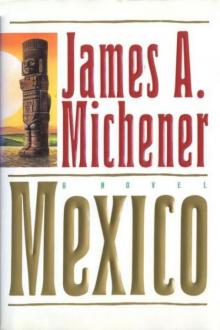 Mexico
Mexico The World Is My Home: A Memoir
The World Is My Home: A Memoir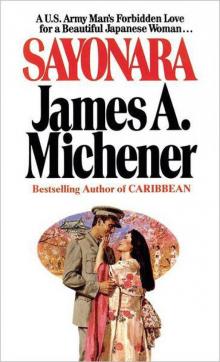 Sayonara
Sayonara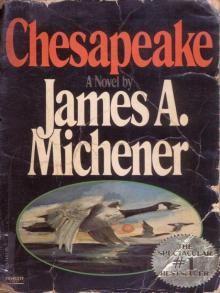 Chesapeake
Chesapeake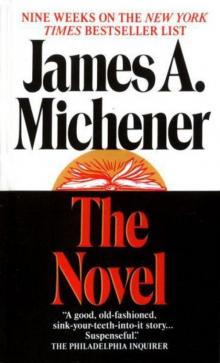 The Novel
The Novel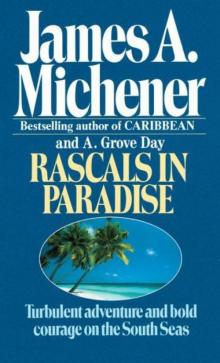 Rascals in Paradise
Rascals in Paradise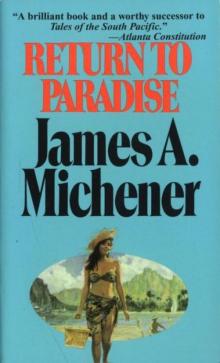 Return to Paradise
Return to Paradise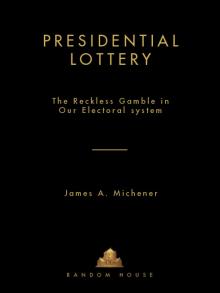 Presidential Lottery: The Reckless Gamble in Our Electoral System
Presidential Lottery: The Reckless Gamble in Our Electoral System The Source
The Source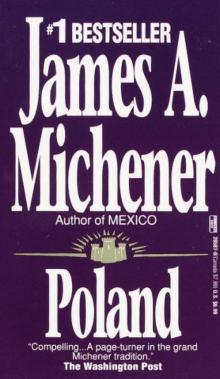 Poland
Poland Space
Space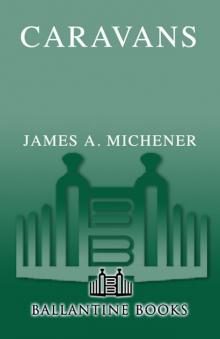 Caravans
Caravans Creatures of the Kingdom: Stories of Animals and Nature
Creatures of the Kingdom: Stories of Animals and Nature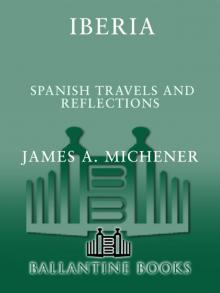 Iberia
Iberia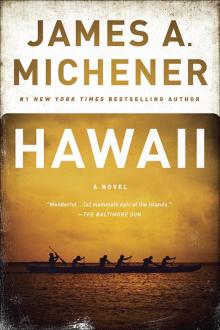 Hawaii
Hawaii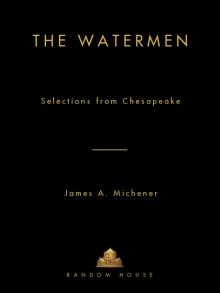 The Watermen: Selections From Chesapeake
The Watermen: Selections From Chesapeake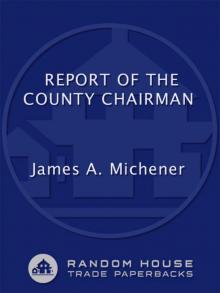 Report of the County Chairman
Report of the County Chairman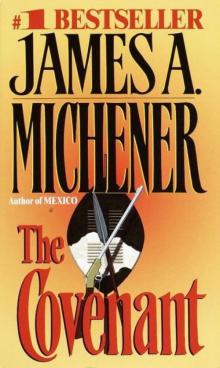 The Covenant
The Covenant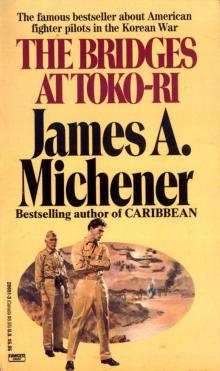 The Bridges at Toko-ri
The Bridges at Toko-ri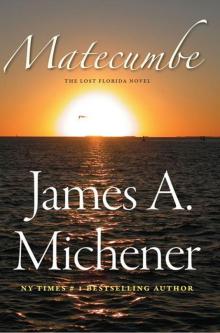 Matecumbe
Matecumbe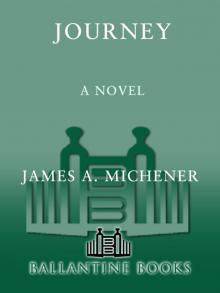 Journey: A Novel
Journey: A Novel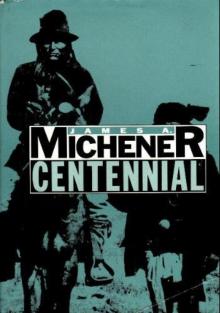 Centennial
Centennial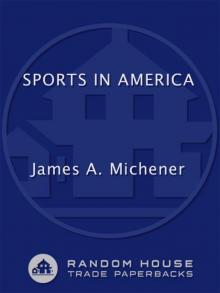 Sports in America
Sports in America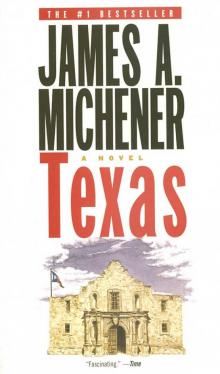 Texas
Texas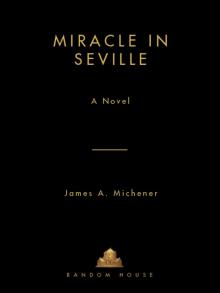 Miracle in Seville
Miracle in Seville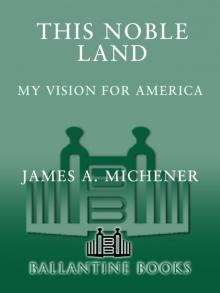 This Noble Land: My Vision for America
This Noble Land: My Vision for America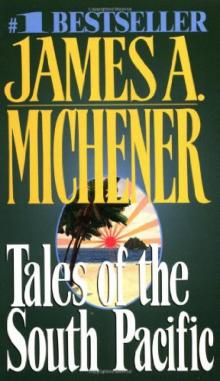 Tales of the South Pacific
Tales of the South Pacific Bridges at Toko-Ri
Bridges at Toko-Ri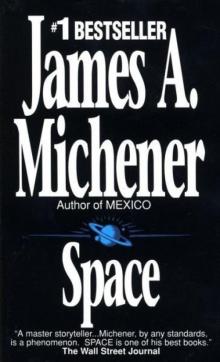 Space: A Novel
Space: A Novel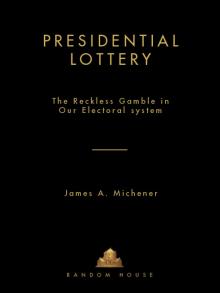 Presidential Lottery
Presidential Lottery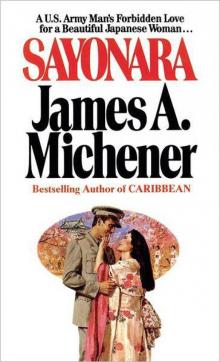 Sayonara: A Novel
Sayonara: A Novel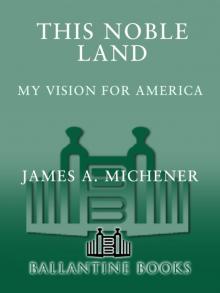 This Noble Land
This Noble Land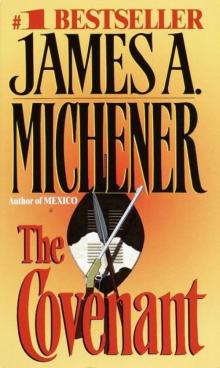 The Covenant: A Novel
The Covenant: A Novel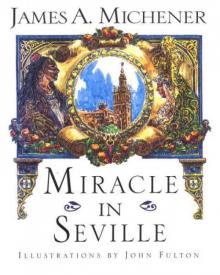 Miracle in Seville: A Novel
Miracle in Seville: A Novel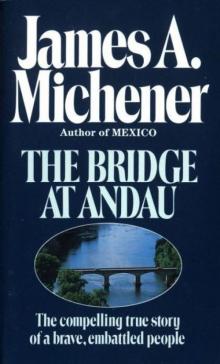 The Bridge at Andau
The Bridge at Andau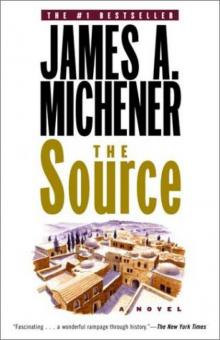 Source
Source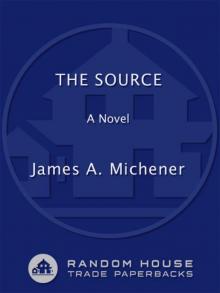 The Source: A Novel
The Source: A Novel Journey
Journey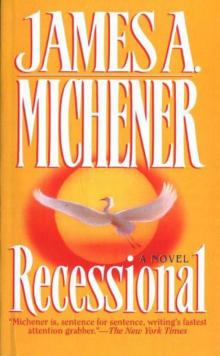 Recessional: A Novel
Recessional: A Novel Legacy: A Novel
Legacy: A Novel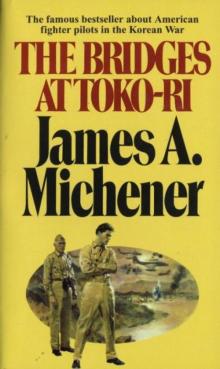 The Bridges at Toko-Ri: A Novel
The Bridges at Toko-Ri: A Novel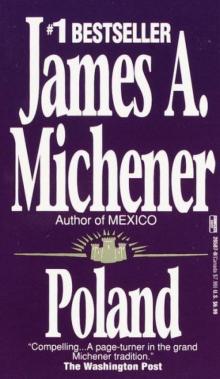 Poland: A Novel
Poland: A Novel